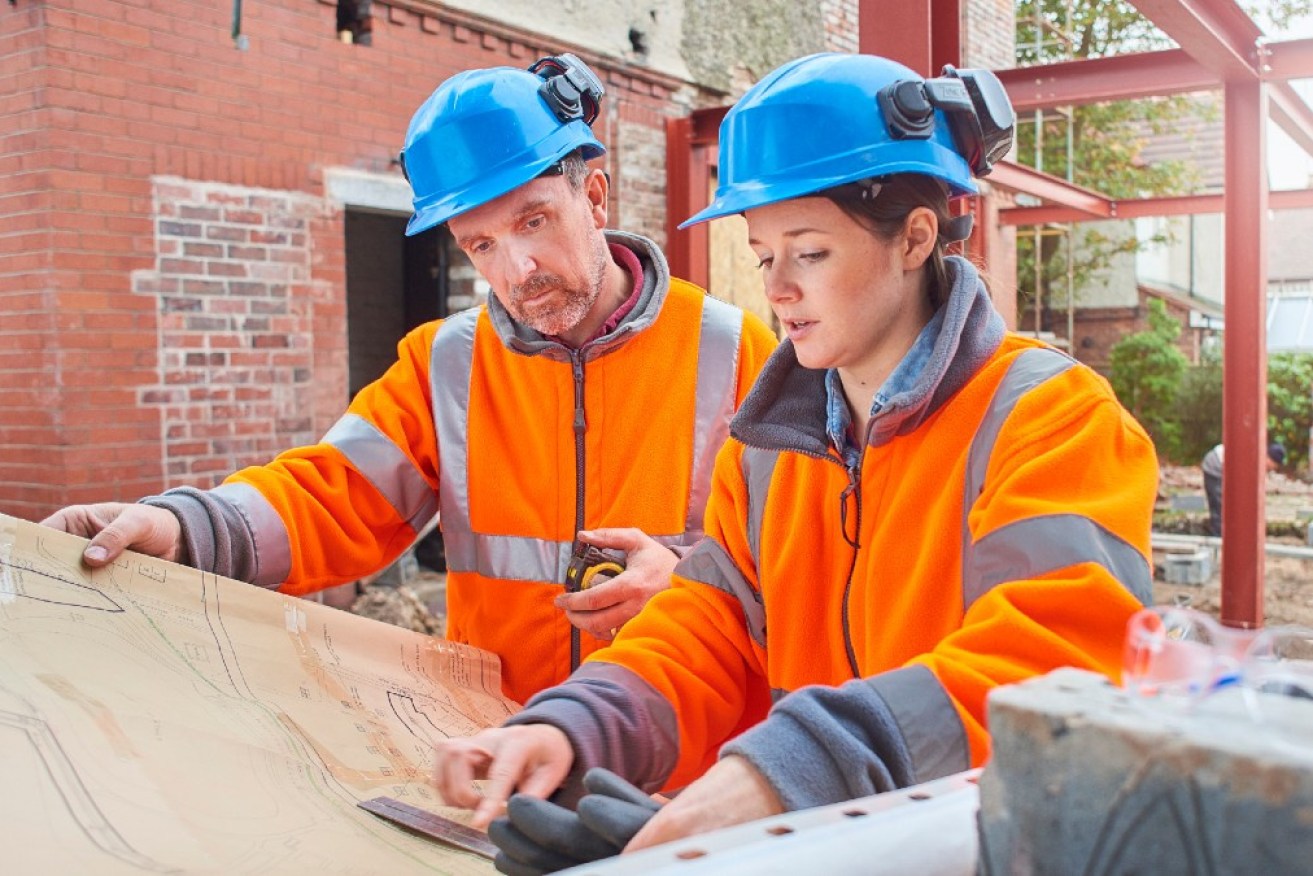HomeBuilder fails to address estimated 30 per cent fall in apprenticeships


The number of new apprenticeships and traineeships is set to plunge 30 per cent over the next two years. Photo: Getty
The HomeBuilder program will mostly give taxpayer money to people who already planned to renovate or build a new home, economists warn.
And although the federal government continues to tout its latest stimulus as a way to save Australian jobs, critics say it will only help a handful of workers.
Young aspiring tradies are among those set to miss out.
Modelling from the Mitchell Institute suggests almost one out of every three young Australians who had been planning to take on an apprenticeship will miss out on a position as a result of the pandemic.
That means the future generation of skilled trades men and women – and therefore the building industry – is under a cloud.
And the HomeBuilder program will do little to help the problem.
“What’s needed with this particular problem with the apprentices is something more direct,” Mitchell Institute policy fellow Peter Hurley said.
Unless government steps up, Mr Hurley said, the number of new apprenticeships and traineeships will fall by at least 30 per cent over the next two years.
That would mean roughly 45,000 fewer apprentices a year in the financial years ending 2021 and 2022.
He said government could offset the fall by announcing more public works, while increasing the minimum number of apprentices that firms must use when working on these projects.
“They do this already with a lot of state government policies – whether it’s public transport or building a new tunnel or road – and that’s great,” Mr Hurley said.
“But we think it would be a great idea to increase that quota.”
The Mitchell Institute is also calling on governments to “increase employer incentives and wage subsidies to make it easier for employers to keep current apprentices and trainees or bring on new ones”.
This is important given the high degree of economic uncertainty most companies now face, Mr Hurley said.
“We also need to create projects so that apprentices and trainees can stay employed and working in their occupation while the employment market recovers,” he writes in his report.
Given trade apprenticeships last between three and four years, a pipeline of work stretching over several years would give employers the confidence and certainty required to take on additional apprentices.
Younger Australians will remain jobless for longer unless swift action is taken, Mr Hurley has warned.
His research found that, during previous recessions, a 5 percentage point increase in the unemployment rate led to a 30 per cent fall in the number of new apprenticeships and traineeships.
Should that happen again, Mr Hurley said, Australia will suffer a devastating 50 per cent jump in the number of school leavers classified as Not in Employment, Education and Training (NEET).
This category of “disengagement” is associated with poorer health outcomes, higher rates of long-term unemployment, and a lifetime characterised by insecure work and lower pay.
This is such a big problem that it’s worth us having a much more direct set of policies directed towards it,” Mr Hurley said.
His comments come after deputy Labor leader Richard Marles on Sunday slammed the Coalition’s HomeBuilder program for not doing enough to help the struggling construction industry.
Mr Marles told ABC’s Insiders that while the coronavirus has cut the number of houses to be built in 2020 by 60,000, the HomeBuilder program would only encourage 10,000 more homes to be built.
“They’ve spent one-10th of what was spent during the global financial crisis to deal with this area,” Mr Marles said.
Tweet from @tanya_plibersek
“There’s a million people who work in home construction. The majority of those – five out of six of those who have lost their jobs – are not going to get them back by virtue of this initiative.”
Labor has repeatedly called on the government to include a social housing initiative in its housing stimulus plan. (Economists argue that would save more jobs.)
It has also suggested removing the cap on the government’s First Home Loan Deposit Scheme.
Meanwhile, Finance Minister Mathias Cormann told Sky News the federal government believes it has “appropriately targeted the level of fiscal support”.
“We are providing $25,000 towards new building and indeed towards substantial renovation – and we took the view that, in all of the circumstances, it was appropriate for this to be directed towards either singles with an income of up to $125,000 or couples with income of up to $200,000,” Senator Cormann said.










